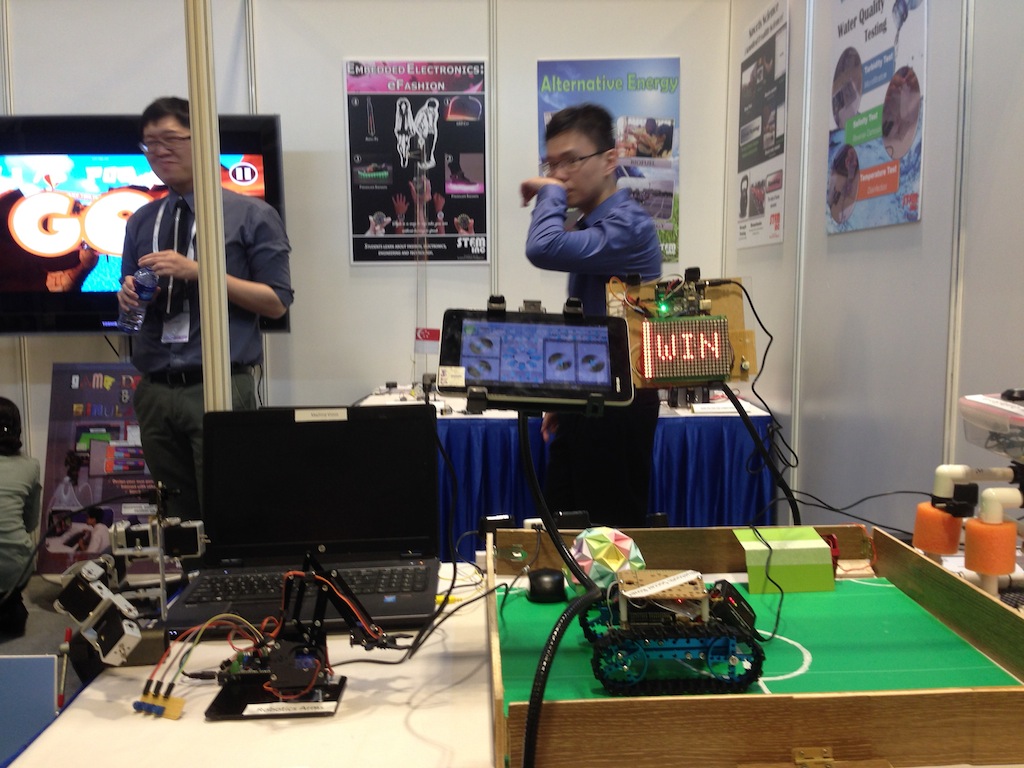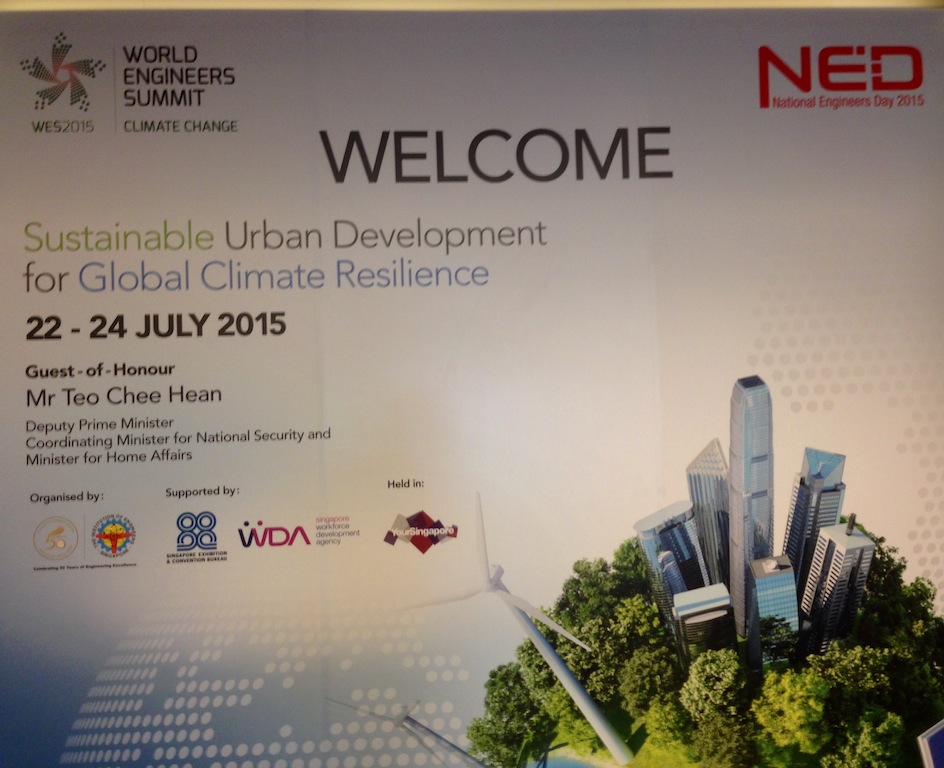Organized by the Institution of Engineers, Singapore (IES) from July 22 to July 24, WES emphasize the role of engineers from across the world in shaping innovative and technological solutions on sustainable urban development for global climate resilience.
“With so many challenges in front of us, the message is clear: We need more engineers and we require them to be innovative and competent,” said Chong Kee Sen, President of the IES, during the opening ceremony of the summit, adding that the gathering of engineers will boost knowledge and experience of the engineering community in combating and adapting to climate change and building climate resilience.
He also announced that in line with Singapore’s 50 years, the country will honour 50 engineering achievements that have made a significant positive economic and societal impact to Singapore.
At the summit, aside from the plenary sessions with leading engineers and climate experts, dozens of technical presentations and sustainable solutions and products are being showcased at the exhibition center.

Singapore’s Deputy Prime Minister Teo Chee Hean, who serves as the guest speaker, underscored that climate change is a global challenge that needs collective action by all countries considering its devastating impact to the planet.
“Although Singapore contributes only 0.11 percent of global emissions, we have been an early-adopter of green policies and technology, doing our part as a responsible member of the international community to manage our greenhouse gas emissions,” Hean explained. “Because of Singapore’s small size and urban development, we can play a useful role as a living laboratory to test-bed and pilot innovative urban solutions.”
The deputy prime minister said that Singapore has submitted to the United Nations Framework Convention on Climate Change (UNFCCC) its national action plan or the Intended Nationally Determined Contribution (INDC) earlier this month indicating that the country intends to reduce its emission by 36 percent from 2005 levels by 2030, and to stabilize emissions with the aim of peaking around 2030.
Platforms such as the WES, he said, help facilitate the exchange of knowledge and best practices between engineers, business leaders, policymakers and other professionals.
“This is not only raises local awareness about climate change, but also promotes international collaboration so that engineers can continue to help build a better future for all of us,” deputy prime minister Hean said.
Leading the conversations at the opening ceremony were speakers including former Asian Bank and Development executive Bindu Lohani now a distinguish fellow of the Institute for Global Environment Strategies (Japan) who talked about engineering and technological challenges in addressing climate resilience smart cities; Tan Gee Paw, the Chairman of Singapore’s Public Utilities Board who discussed on water issues; Philippe Joubert, Senior Advisor and Special Envoy for Energy and Climate of the World Business Council on Sustainable Development who shared his views on the connection of water and energy in a changing climate.
The high-level discussions at the summit will focus on four issues: clean environment and water resources; sustainable development and infrastructure; sustainable energy; and resilience and adaptation against climate change.
Business sector, a key partner
Climate inaction is not an option and so business leaders need to show the way to a low-carbon economy that lies in strategic market investment and work with other sectors of the society like the engineering community, said Choi Shing Kwok, Permanent Secretary for the Environment and Water Resources at a roundtable discussion on Tuesday attended by leading engineers, climate experts and business leaders.
“Climate change is a global problem which needs a collective global solution. Inaction is not an option unless we want to risk extinction and all of us, be it companies or governments, have to make challenging policies and difficult decisions, hopefully supported by the best analysis and research that the science can offer us today,” Kwok stressed.
He added that beyond the individual business opportunities, project returns and accolades that being green can confer on businesses, there is growing evidence that choosing pro-actively to be sustainable makes good business sense for the whole company. “ I am not just talking about success in the form of having a feel-good culture but also in terms of profitability, growth and overall success in the marketplace. “
The discussion at the roundtable revolved around three topics: climate change adaptation challenges and opportunities; the role of businesses in climate mitigation; and the role of women in building climate resilience.
“The business sector is facing a challenging world. We need knowledge, technical know-how and the understanding of interdependence of systems is critical to leveraging knowledge to drive solutions,” said Sanjay Kuttan, Director and country manager of the Clean Technology Centre, DNV GL-Energy. “Climate change is happening and the worst is yet to come so we need to do something.”
Young engineers, too are part of the solution
The World Engineers Summit also highlighted the importance of young engineers in finding fresh ideas and exploring innovative solutions to the climate crisis.
The summit is also held in conjunction with the National Engineers Day (NED) involving more than 70 schools to showcase innovative, technological solutions against climate change.
For this year’s NED, students can get to immerse in the fascinating world of engineering through a series of informative talks and engineering exhibits. The highlight of the NED is the Energy Innovation Challenge where students were given the opportunity to work on real engineering problems in the past four months. Through this challenge, the students were exposed to the potential role that they can play in building a sustainable future.
‘By participating in these activities, IES hopes to motivate our younger generation to choose engineering as their career. This will help build a strong talent pipeline to support Singapore’s future growth,” said Yeoh Lean Weng, chairman of the organizing committee of NED 2015.
Women can take a lead role
Even though women are disproportionately affected by climate change, at the same time they play a crucial role in climate change adaptation and mitigation actions. It is increasingly evident, according to the UNFCCC, that involving women and men in all decision-making processes on climate action is a significant factor in meeting the climate challenge and achieving the long-term objectives of the Convention.
Source: Philippine EnviroNews | 22 July 2015














